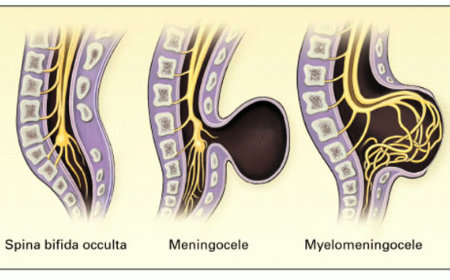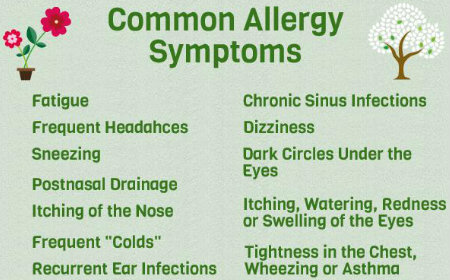![]() The information provided by our expert should not constitute a diagnosis of your condition. Always consult a medical practitioner or healthcare provider for a formal diagnosis. By making use of this content, you agree that ConceiveEasy and the expert assume no liability.
The information provided by our expert should not constitute a diagnosis of your condition. Always consult a medical practitioner or healthcare provider for a formal diagnosis. By making use of this content, you agree that ConceiveEasy and the expert assume no liability.
If you have been thinking about getting pregnant, you will want to make sure that you are healthy before you attempt to conceive. However this tip is one thing that cannot be avoided and that is before you conceive, you must take folic acid, or folate. Claim Your 20 Free Pregnancy Tests – Click Here
In fact, you want to start taking folate at least 3 months before you conceive in order to make your body completely ready to support a healthy pregnancy.

What is Folic Acid or Folate?
Folate or folic acid is also known as Vitamin B9 (as other B vitamins are important to take during pregnancy such as B12 and B6, which can help reduce the severity of morning sickness). Folate is found mostly in leafy green vegetables such as kale, enriched grains, and orange juice.

Why do you need folic acid before pregnancy?
The reason you want to take folate before conception and during early pregnancy because the risk of the baby being born with serious neural tube defects goes down by 60% to 70% which is significant. Folic acid plays a huge role in cell growth and development, as well as the formation of tissue.

Of course the risk isn’t zero as at times genetics can cause these defects and not much can be done to prevent that if there is something genetic or chromosomal.

What defects do folic acid prevent?
The main defects that folic acid can lower the chance of happening are when the spinal cord and column don’t close completely (spinal bifida), lack of complete brain development, an abnormal opening in the skull by an off-shoot of brain tissue. These are serious issues, and in most cases are preventable by taking folic acid before and during early pregnancy.
These defects can start happening during the first 28 days of pregnancy, and that can be before the woman even knows she is pregnant. That is why it is crucial to have folic acid in the body before you are pregnant.

What if I got pregnant before starting folic acid?
If you accidentally conceived without any planning, because you weren’t looking to get pregnant and if you haven’t taken folic acid- then don’t panic. Just start taking it immediately.

How does folic acid reduce miscarriage risk?
Folic acid can also help reduce the risk of miscarriage, and in addition to that it can help reduce the levels of a chemical in the blood called homocysteine.
High homocysteine levels have been linked to the increased risk for heart disease. If you also have folate deficiency, then you need to take folic acid, and it can also help treat anemia, as well as the ability of the bowel to absorb nutrients.

Other benefits to taking folic acid which include the prevention of cervical cancer, colon cancer, stroke and heart disease.

What Foods are Rich in Folic Acid?
As discussed previously, dark green leafy vegetables such as kale are rich in folic acid, as well as orange juice and whole grains. Other foods that are rich in folic acid are bananas, tomato juice, asparagus, melons, lemons, mushrooms, beans, beef liver and kidneys.
That is another reason you would want to swap your white bread toast for whole grain bread toast, or sandwich. Not only are refined carbohydrates that come from white breads and pastas not good for you- but whole grains have folic acid in them.

Complex carbohydrates are good for you as it supplies you the energy you can use effectively, which simple carbohydrates do not as they end up making you crash and hungrier for more carbs which in the end causes you to gain weight and has no nutritional value.
Therefore, having whole grain breads, pastas and brown rice gives you two benefits: it gives you the complex carbs that you need, as well as the folic acid you also need. Talk about killing two birds with one stone.

How Much Folic Acid is Recommended?
The recommended amount of folic acid for women who are trying to conceive varies among different situations.
In most cases, doctors will recommend that women take at least 400 mcg daily, but if you have epilepsy, you need to take double that amount in order for it to be effective. If you are undergoing in vitro fertilization, you may want to take an additional amount of folic acid. If you have had a child that has a neural tube defect, then your doctor will recommend that you take more than 400 mcg daily to lower the chance of having another recurrence.

Your doctor will give you the best answer, and you may need a prescription supplement if necessary as your needs will be assessed.
You will want to eat foods that are rich in folic acid, as well as taking a supplement so you have the minimum amount of folate in your body.
If you are suffering from awful morning sickness or even worse, hyperemesis gravidarum and can’t hold anything you eat or drink in, then your doctor may prescribe you folic acid in an injectable form.

How to Improve Absorption of Folic Acid
If you are not suffering from uncontrollable pregnancy sickness, there are steps to take in order to make your absorption of folic acid more effective.
The best thing to do take your folic acid supplement either right before breakfast, or literally right before going to bed the night before. Taking folic acid supplements with food may slightly reduce the absorption rate, but not significantly.
That being said, if the only way to ward off nausea is to take the supplement with food and not on an empty stomach, then do that. You will also want to make sure that you are drinking a lot of water while taking the supplement whether you take it with food or not.
Do not drink green or black tea with the supplement as it can reduce the absorption of folate (you would want to limit any tea with caffeine during pregnancy regardless so it is best not to drink any tea, and if you do consult your physician about the safety).

Can I Take Folic Acid With Medications?
There are some medications that are safe to take during pregnancy, but you will want to consult your doctor about the possible interactions with even safe medications for pregnancy and folic acid absorption. That said, folic acid may reduce the effectiveness of some medications as well. You may have to take them at different times of the day in order for one not to cancel the effectiveness of the other.

How Much Folic Acid is Too Much?
Having an excess amount of folic acid in the body while pregnant hasn’t been linked to any problems. And having a little more than needed than less is better since you need it for yourself as well as your unborn baby, an example of upwards of 800-1200 mcg per day.

Not to mention, it would be very hard to consume that many foods that are extremely rich in folate all at once, unless the woman is having serious pregnancy cravings for foods that are heavy in folic acid.
Too much folic acid can create problems for those who aren’t pregnant though.
Symptoms such as nausea, digestive problems, loss of appetite, bloating, gas, a bitter or unpleasant taste in the mouth, depression, too much excitement, irritability and a zinc deficiency have been reported to being being linked to having too much folate in the system.
More severe signs, which are incredibly rare include numbness and tingling, psychotic behavior, mouth pain, weakness, confusion, trouble concentrating, fatigue and possibly seizures. However that is extremely rare and if there is such a buildup of folate in the system- then something else is going on with your health which is getting into the way of that.

What If I’m Allergic to Folic Acid?
Occasionally, some people may be allergic to folic acid and those allergy symptoms would consist of wheezing, skin rash, swelling of the face and throat. This is extremely rare, and pregnant women who are allergic to folic acid will unfortunately not be able to take folic acid during a pregnancy.
In this instance, she will be expected to take prenatal vitamins that don’t have folic acid and to be watched very carefully during the pregnancy.
In some cases, women who are allergic to folic acid may be fine when it comes to consuming green leafy vegetables and other foods that have folate. They just cannot take the supplement, and if a woman suspects she is allergic to folate, or knows she is, then she will also have to see her allergist to talk about the safety of amount of folate she can consume without having allergic reactions.


Conclusion
To sum up, if you are interested in trying to conceive, then you will need to take the appropriate steps to make sure your body will be ready to sustain a healthy pregnancy.
You will also need to start taking folic acid before you start trying to reduce the odds of your unborn baby developing any neural tube defects which could be fatal or be disabling for the child during his or her life.
If you are unable to eat and drink during pregnancy due to morning sickness that is severe, or if you are allergic to folate, then you again need to consult with a physician to help you achieve a healthy pregnancy by alternative ways. You will need more medical supervision in these cases.
However, most of the time pregnant women will be able to handle folic acid supplements, and it can be taken with food if necessary if taking it on an empty stomach makes them sick. You will also want to take a prenatal vitamin in conjunction with a folic acid supplement in order to increase the chances of having a healthy baby even more!










Comments